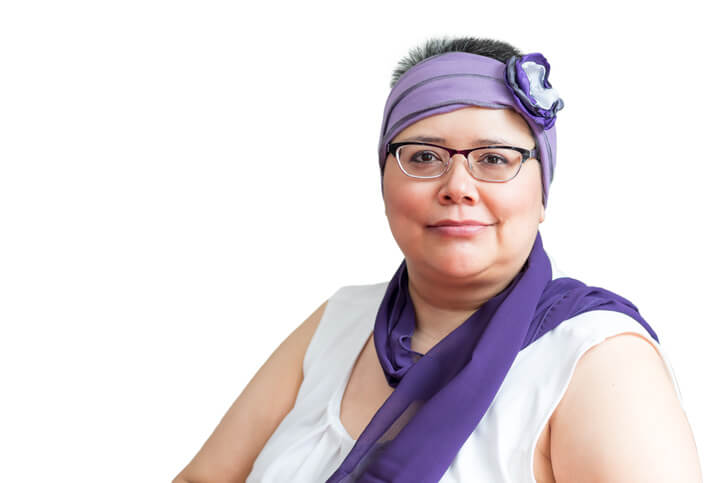Cancer takes a physical and emotional toll. The disease disrupts not only physical well-being, but also the patient’s life plans, outlook and relationships. At close of treatment, individuals may feel as though they’re waking from a long dream and seek improved quality of life rather than simply returning to their pre-diagnosis routines. Hair regrowth after chemo is one positive aspect of this recovery period, visibly signaling the end of a traumatic time. Hair often looks different than it did pre-chemotherapy (i.e., a different color, coarser or finer texture). Still, most patients can look forward to regrowth as the body’s cells start functioning normally again.
What Does “Normal” Hair Regrowth After Chemo Look Like?
When and where hair regrowth begins after cancer treatment ends varies from person to person. Different parts of the body (i.e., scalp, pubis, eyelashes, body hair, etc.) may begin growing hair back sooner than others. Despite the variation that can occur, here’s a typical timeline showing when a cancer patient can expect hair regrowth to begin following chemotherapy cessation:
- Soft fuzz appears after two to three weeks
- Real hair begins growing back at its normal rate after one month
- An inch of hair should be visible around the two-month mark
Most often, hair regrowth begins at the scalp before other parts of the body. Eyelashes, eyebrows, etc. may take a little longer. All hair should eventually return to normal growth patterns as the body fully recovers.
Permanent Hair Loss (Persistent Alopecia)
In some rare cases, chemotherapy can leave patients with persistent alopecia, or permanent hair loss. While this can occur after several years of aggressive chemotherapy treatments, it also happens more frequently in Taxotere patients. Around 10-15% of patients prescribed Taxotere (according to some medical reviews) develop permanent baldness. Taxotere (Docetaxel) falls under the cytotoxic drug family. These medications interfere with cancer cell’s growth and ability to spread throughout the body.
Injected intravenously with a “cocktail” of other cancer-fighting drugs, Taxotere has been positively linked to permanent hair loss after chemotherapy treatment has ended. In fact, one study found that 6.3% of patients who received Taxotere chemotherapy treatment experienced permanent alopecia. Conducted by Dr. Scot Sedlacek at the Rocky Mountain Cancer Center in Denver, CO, the study concluded: “Such an emotionally devastating long-term toxicity from this combination must be taken into account when deciding on adjuvant chemotherapy programs in women who likely will be cured of their breast cancer.”
Unfortunately, many oncologists don’t tell Taxotere patients about the permanent hair loss risk. In other words, they cannot reverse this easily avoidable, emotionally devastating consequence. Other drugs comparable to Taxotere (including Paclitaxel, also called Taxol) don’t cause permanent hair loss. Oncologists can easily substitute Taxol for Taxotere, since it’s just as effective for killing cancer cells.
If I Don’t See Hair Regrowth After Taking Taxotere, Do I Have a Claim?
If you had Taxotere chemotherapy and experienced permanent hair loss afterwards, you may be eligible for compensation. Because drug manufacturer Sanofi-Aventis failed to warn consumers and prescribing physicians about the risk of permanent hair loss, lawsuits are being brought forward by former patients now seeking justice for their pain and suffering.
If you or a loved one took Taxotere and experienced less than 50% total hair regrowth for six months or longer after finishing treatment, you may have a case. To have an experienced attorney evaluate your claim and see if you may qualify, fill out a free Taxotere case review form today.
Related: Taxotere Side Effects Include Unique Permanent Hair Loss Risk
Lori Polemenakos is Director of Consumer Content and SEO strategist for LeadingResponse, a legal marketing company. An award-winning journalist, writer and editor based in Dallas, Texas, she's produced articles for major brands such as Match.com, Yahoo!, MSN, AOL, Xfinity, Mail.com, and edited several published books. Since 2016, she's published hundreds of articles about Social Security disability, workers' compensation, veterans' benefits, personal injury, mass tort, auto accident claims, bankruptcy, employment law and other related legal issues.

